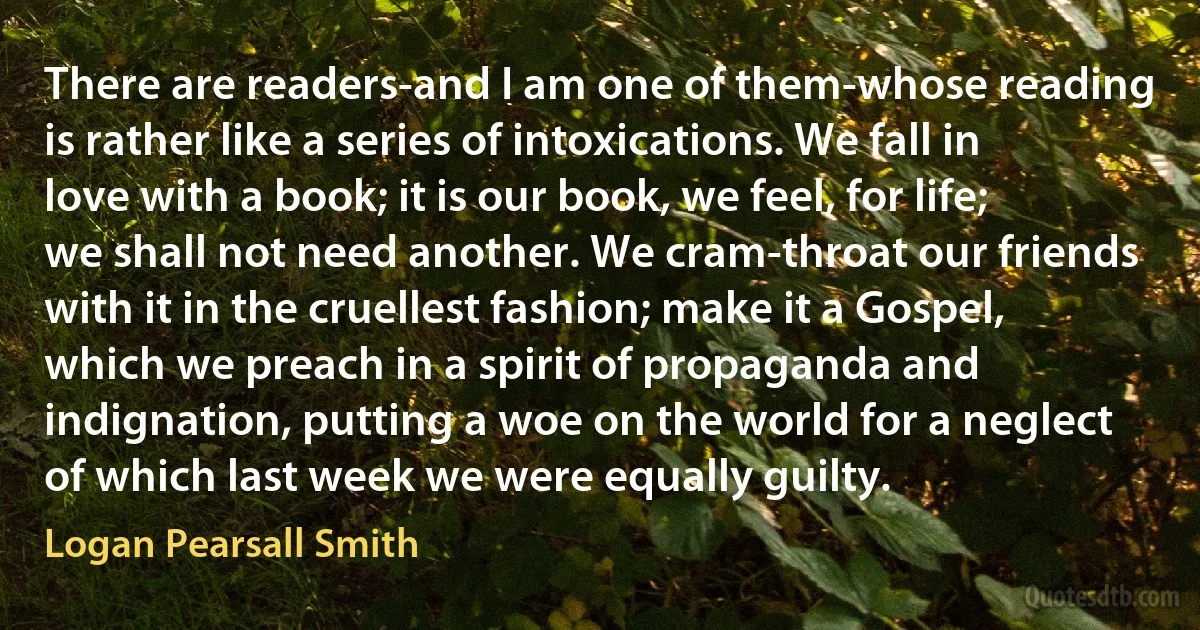Fashion Quotes - page 73
We can build on the Children's Health Insurance Program enacted in 1997 -- by passing the bipartisan legislation introduced last year, to enable parents to qualify for the coverage already available to their children. We can pass the bipartisan legislation now pending to provide affordable health care to families with disabled children. And we can begin, on a bipartisan basis, to fashion legislation that will require employers with more than 100 workers to be good corporate citizens and provide basic health insurance for their workforce. I know how hard it will be to hammer out an agreement here. But we must try. And if at first we cannot achieve a reasonable approach across party lines, then we must continue to press the case. I believe that we can ultimately prevail -- because I believe the American people, across the political spectrum, are ready for national health reform.

Ted Kennedy
In 1918 Mr. Lloyd George let himself produce such a programme of development as would astonish his rivals. He was going to hang the Kaiser. You said, "That is the man who has the ear of the public." He was going to build one million houses. He was going to make the land fit for heroes to live in, and you said, "That's the thing." He was going to search the pockets of Germany for the last penny, and you said, "That the stuff." My friends, it was stuff. (Cheers and laughter.) ... If unemployment had been tackled in a business-like fashion in the first three years after the War, it would not have grown to the proportion it had now reached... Mr. Lloyd George has been in office, nay in power, with a majority of 300; Mr. Baldwin has been in power with a majority of 200. What have they done? Have they broken the tale of heartbreakening worsening? Nowhere. It is only to the Labour Party that you can look for the solution of your troubles.

Ramsay MacDonald
One of the great reasons why I belong to the Labour Party and hold the Socialist views of what a wise and just social structure is, is because I detest class politics and want to end them in real national unity. In bringing that about we have to consider the claims of the great mass of our people, who, on account of their poverty, cannot adequately protect themselves. What has national unity meant to them? A change in a machine can make them outcasts; a change in fashion can make them paupers... The Labour Party wants to bring within the bounds and the meaning of this national unity the bottom dog, as he is called. For this purpose we have organised our great public services. The Labour Party wishes to develop them.

Ramsay MacDonald
For all their focusing on the all-purpose bogey of Hindu nationalism (or worse isms), it is remarkable that Indian Marxists and their Western disciples have completely failed to study this ideology. During my Ph.D. research on this very topic, I found that practically all secondary publications in the field, including some influential ones, dispensed almost completely with the reading of primary sources. Typically, a few embarrassing quotations, selected by Indian critics of Hindutva from some old pamphlets (mostly Golwalkar 1939), are repeated endlessly and in unabashedly polemical fashion.

Koenraad Elst
It is incomprehensible to me that any thinker can calmly call himself a modernist; he might as well call himself a Thursdayite. ... The real objection to modernism is simply that it is a form of snobbishness. It is an attempt to crush a rational opponent not by reason, but by some mystery of superiority, by hinting that one is specially up to date or particularly "in the know." To flaunt the fact that we have had all the last books from Germany is simply vulgar; like flaunting the fact that we have had all the last bonnets from Paris. To introduce into philosophical discussions a sneer at a creed's antiquity is like introducing a sneer at a lady's age. It is caddish because it is irrelevant. The pure modernist is merely a snob; he cannot bear to be a month behind the fashion.

G. K. Chesterton
There were a lot of utopias in the nineteenth century, wonderful societies that we might possibly construct. Those went pretty much out of fashion after World War I. And almost immediately one of the utopias that people were trying to construct, namely the Soviet Union, threw out a writer called Zamyatin who wrote a seminal book called We, which contains the seeds of Orwell and Huxley. Writers started doing dystopias after we saw the effects of trying to build utopias that required, unfortunately, the elimination of a lot of people before you could get to the perfect point, which never arrived. ... I don't believe in a perfect world. I don't believe it's achievable, and I believe the people who try to achieve it usually end up turning it into something like Cambodia or something very similar because purity tests set in. Are you ideologically pure enough to be allowed to live? Well, it turns out that very few people are, so you end up with a big powerful struggle and a mass killing scene.

Margaret Atwood
In the fifteen years following the First World War, and especially in the immediate aftermath, the industrial nations exploited this new freedom in remarkably diverse fashion. The French followed the line of least resistance with, on the whole, the best results. The British followed the line of greatest wounds. The Germans so handled matters, or so yielded to circumstances, as to produce the greatest inflation of modern times. The United States, by a combination of mismanagement and non-management, produced the greatest depression. In all the long history of money, the decade of the 1920s-extended by a few years to the consequences-is perhaps the most instructive.

John Kenneth Galbraith
At present the fashion appears to have set in in favour of two very distinct styles. One is a very impure and bastard Italian, which is used in most large secular buildings; and the other is a variety of the architecture of the thirteenth century, often, I am sorry to say, not much purer than its rival, especially in the domestic examples, although its use is principally confined to ecclesiastical edifices. It is needless to say that the details of these two styles are as different from each other as light from darkness, but still we are expected to master both of them. But it is most sincerely to be hoped that in course of time one or both of them will disappear, and that we may get something of our own of which we need not be ashamed. This may, perhaps, take place in the twentieth century, it certainly, as far as I can see, will not occur in the nineteenth.

William Burges
Souls will be unable to reach perfection who do not strive to be content with having nothing, in such fashion that their natural and spiritual desire is satisfied with emptiness; for this is necessary in order to reach the highest tranquility and peace of spirit. Hence the love of God in the pure and simple soul is almost continually in act.

John of the Cross
When we come to it
We, this people, on this wayward, floating body
Created on this earth, of this earth
Have the power to fashion for this earth
A climate where every man and every woman
Can live freely without sanctimonious piety
And without crippling fear When we come to it
We must confess that we are the possible
We are the miraculous, the true wonders of this world
That is when, and only when
We come to it.

Maya Angelou
The artefacts of a genius are distinguished by rich human content, for which he forges new images and new techniques, creates new styles. He sees himself as a unique eruption in the desert of the banal. He feels himself mysteriously inspired or possessed. The craftsman, on the other hand, is content to use the traditional materials and techniques. The more self-possessed he is, the better craftsman he will be. What pleases him is skill of execution. He is very concerned with his contemporary success, his market value. If a certain kind of political commitment is fashionable, he may be committed; but out of fashion, not conviction. The genius, of course, is largely indifferent to contemporary success; and his commitment to his ideals, both artistic and political, is profoundly, Byronically, indifferent to their contemporary popularity.

John Fowles
...I tell them the funny stories of the models trying to knock me off of the runway. They are laughing and giggling. I get them. Then we do a fashion show. I get them walking and strutting, and we have fun. Not only is it a fashion show, but we also talk about who they are and what they wish for. I'll ask an 11-year-old girl to give me one of three wishes, and she'll say, "That my mother believes me.” Heartbreaking. I would imagine it's stemmed from some of the altercations in my life with abuse. I always tell them that I get more out of this than they do.

Beverly Johnson
But Björk wore the best dress ever to the Oscars, ever. She wore a swan. And I'm not talking about a dress with white feathers on it. Oh, no. She rocked the whole bird. The beak was up here and shit. And she accessorized it with an egg -- what else you gon' wear with your bird?! And all of the fashion magazines said she was the worst dressed, but when they say you're the worst, that means you're the best.

Margaret Cho
I was always very outgoing. I have always loved to be in front of the camera, very talkative, very extraverted, like I am now. My little brother is seven and he is exactly the same. People always told me I should be an actress. I still love working in front of the camera, I love taking photographs and I prefer modeling to acting. Acting is something you have to learn over years. I have a background in fashion and still love doing fashion photography. I also love doing nudes. They are an extension of fashion to me. You can see in my pictures that I love to work the camera. That shows in your face.

Tera Patrick
She said: My Lord! How can I have a child when no mortal hath touched me? He said: So (it will be). Allah createth what He will. If He decreeth a thing, He saith unto it only: Be! and it is.
And He will teach him the Scripture and wisdom, and the Torah and the Gospel,
And will make him a messenger unto the Children of Israel, (saying): Lo! I come unto you with a sign from your Lord. Lo! I fashion for you out of clay the likeness of a bird, and I breathe into it and it is a bird, by Allah's leave. I heal him who was born blind, and the leper, and I raise the dead, by Allah's leave. And I announce unto you what ye eat and what ye store up in your houses. Lo! herein verily is a portent for you, if ye are to be believers.
And (I come) confirming that which was before me of the Torah, and to make lawful some of that which was forbidden unto you. I come unto you with a sign from your Lord, so keep your duty to Allah and obey me.

Jesus Christ
Legislators represent people, not trees or acres. Legislators are elected by voters, not farms or cities or economic interests. As long as ours is a representative form of government, and our legislatures are those instruments of government elected directly by and directly representative of the people, the right to elect legislators in a free and unimpaired fashion is a bedrock of our political system.

Earl Warren
The town is divided into various groups, which form so many little states, each with its own laws and customs, its jargon and its jokes. While the association holds and the fashion lasts, they admit nothing well said or well done except by one of themselves, and they are incapable of appeciating anything from another source, to the point of despising those who are not initiated into their mysteries.

Jean de La Bruyère
After a day in Berlin I was taken off to Berchtesgaden which we reached after a night in the special train, and were driven by what I assumed to be storm-troopers straight up to Hitler's chalet. Snow was on the ground and a path had been swept up to the steep steps to the house. As I looked out of the car window, on eye level, I saw in the middle of this swept path a pair of black trousered legs, finishing up in silk socks and pumps. I assumed this was a footman who had come down to help me out of the car and up the steps, and was proceeding in leisurely fashion to get myself out of the car when I heard Von Neurath or somebody throwing a hoarse whisper at my ear of ‘Der Führer, der Führer'; and it then dawned upon me that the legs were not the legs of a footman, but of Hitler.

Edward Wood
If we are to retain the freedom of our society, we in this House must try to understand the many forces at work, the excessive permissiveness in some schools which has led to lack of self-discipline, the attitudes and the management at some secondary schools, the deliberate subversion that goes on at some schools, the exploitation and glamorisation of violence in many films and on television, and the licensed obscenities permitted, very wrongly, some years ago by the BBC. I am reminded of the poignant words of Caliban to Prospero: "You taught me language and my profit on't is I know how to curse." That seems, alas, appropriate to some of our school children. Behind all these manifestations there is a mindless fashion for revolution.

Keith Joseph
Our nation was founded to perpetuate democratic principles. These principles are that each man is to be treated on his worth as a man without regard to the land from which his forefathers came and without regard to the creed which he professes. If the United States proves false to these principles of civil and religious liberty, it will have inflicted the greatest blow on the system of free popular government that has ever been inflicted. Here we have had a virgin continent on which to try the experiment of making out of divers race stocks a new nation and of treating all the citizens of that nation in such a fashion as to preserve them equality of opportunity in industrial, civil, and political life. Our duty is to secure each man against any injustice by his fellows.

Theodore Roosevelt



